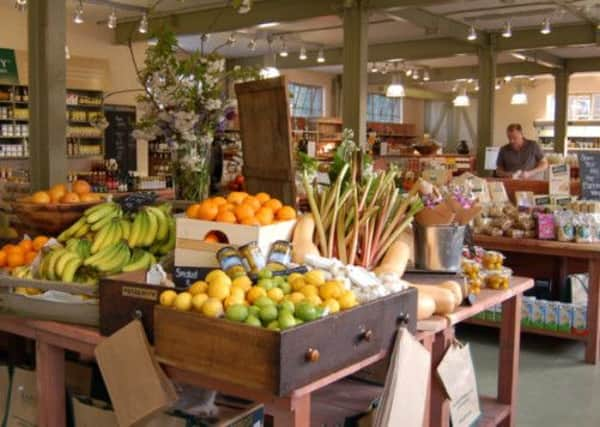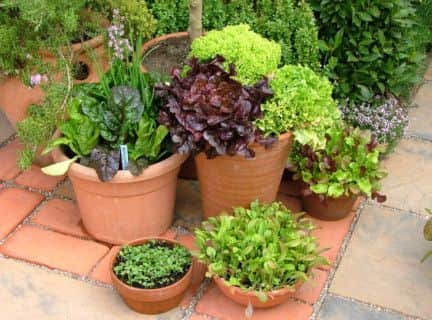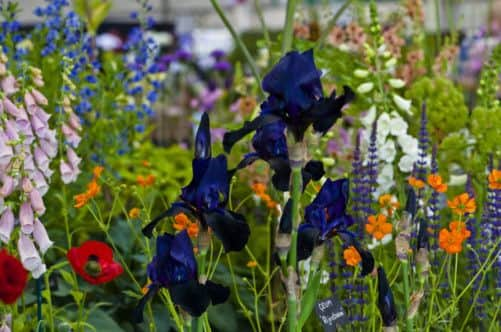Preview: Gardening Scotland at Edinburgh’s Royal Highland Centre


By the time Gardening Scotland 2013 opens at the Royal Highland Centre in Edinburgh on Friday 31 May, these rare treasures and many others like them will be unfurling their petals, just in time to greet the 40,000 visitors who will flock to this year’s show in search of plants, inspiration and gardening advice.
In the years since 2000 when it first took place, Gardening Scotland has become an important date on the calendar for plant lovers.
Advertisement
Hide AdAdvertisement
Hide AdThe show is the biggest plant fair in Scotland and the nurseries that fill the New Hopetoun Gardens Floral Hall with many thousands of flowers are among the best in the UK.


Some, like the peony specialists Binny Plants, have been part of the show since the very start, but others such as Holmes Farm Plants are among the newer names to emerge since Gardening Scotland was established.
Holmes Farm Plants has a reputation as a grower of very reliable perennials and that, explains owner Brian Young, is because of where he trials his plants before offering them for sale. “I grow on an acre of exposed farmland in Ayrshire. There is no windbreak and nothing to hold back the gales, both easterly and westerly that come sweeping in across the pastures. I stake nothing and reject everything that can’t stand up to the conditions.”
You need tough plants if you are going to garden successfully in Scotland, but that doesn’t mean that you have to limit your palette to the horticultural world’s equivalent of thugs. Some of the most beautiful plants in the world grow in the least hospitable spots, including high up beyond the tree line of jagged peaks.
These are the little alpine plants that survive freezing temperatures and biting winds to open their jewel-like flowers when watered by snow melt.


Gardeners in Scotland have always had an affinity with rock plants and the Scottish Rock Garden Club is made up of both professionals and amateurs who share a deep love of alpines.
This year the club celebrates 80 years since it held its first meeting in the Rutland Bar in Edinburgh’s Princes Street and to mark its anniversary it is joining forces with Brightwater Holidays to create an indoor garden that will recreate the rocky ledges, scree slopes and other austere habitats where alpine plants flourish.
Graeme Mitchell of Brightwater Holidays says: “We now organise tours led by expert guides to many of the best places around the world for seeing alpine plants in the wild, but in those early days members of the Scottish Rock Garden Club would travel to the Alps and the Dolomites to explore for themselves the rich flora that clings to some of the highest slopes.”
Advertisement
Hide AdAdvertisement
Hide AdThe secret of success with alpines, as with all plants, is to grow them in conditions that resemble their wild habitat, but as most gardens are filled with plants from many different parts of the world, keeping them all happy can be a challenge.
Fortunately there will be many experts on hand at Gardening Scotland 2013 to help restore harmony in the borders. In the Floral Hall, members of the Royal Caledonian Horticultural Society will be sharing their knowledge of plants and Scotland’s growing conditions, while in the RHS Gardening Theatre, the Royal Horticultural Society will be running talks and workshops and Carole Baxter, Jim McColl and George Anderson will be returning with their popular Q&A sessions.
And on the first day of the show there will be advice on offer from another TV gardener. Alys Fowler, best known for her BBC2 series The Edible Garden, will be talking to audiences in the Cookery Theatre about what to do when faced with a glut.
“Over the years I’ve watched fellow gardeners on my allotment leave crops to go to waste because they’ve grown so much of something that they can’t even give it away,” says Alys whose new book Abundance looks at the many ways, including pickling, fermenting, bottling, preserving and freezing that can be used to capture the goodness of summer and turn it into a well-stocked larder.
Alys says she caught the preserving bug early from her mum who kept sheep and hens and grew all of the family’s fruit and vegetables.
“Later I worked in America where preserving was almost a competitive sport. People were regularly telling me how many gallons of peaches they had bottled. I prefer to preserve foods in small quantities using lots of different recipes as that way you don’t get fed up of eating the same ratatouille or chutney all through the winter.”
However you don’t need an allotment or even a garden to grow vegetables successfully, sometimes all it takes is a few large pots, and Dougal Philip and Lesley Watson of New Hopetoun Gardens will be on hand with the perfect recipes for plants that can skip happily from garden to kitchen pot. They will also be looking at decorative plants with two container gardens reflecting traditional and contemporary styles.
“We are firmly convinced that containers can provide the perfect solution to problem areas in any garden,” says Dougal.
Advertisement
Hide AdAdvertisement
Hide AdMeanwhile there will be inspiration for the entire garden in the Barratt Homes Show Gardens avenue where creative design and inventive planting will come together with dramatic results.
This year’s themes range from ‘Forth Crossing’ by Cartmore Landscapes of Polmont to ‘the Witches of Macbeth’ by students at Scotland’s Rural College Edinburgh, which will feature poisonous plants, a ruined cottage and a cauldron.
Rococo Gardens from Carnoustie will be creating a formal, circular garden with the title of ‘Reflection’ that will explore the ways in which plants and gardens can affect human emotions and Elmwood College will be celebrating ‘The Year of Natural Scotland’.
And Ray Howie will be working with Turffit to produce a garden called: ‘Five Elements of the Orient,’ on behalf of charity Gardening Leave. Ray, a former soldier, says: “I was part of the British Army presence that oversaw the handover of Hong Kong to China and I wanted to use some of the Chinese influences that I picked up during my tour of duty in the garden.”
The relationship between gardens and the food that we eat will be celebrated in the Cookery Theatre where a line-up of top chefs will be showing how to make the most of home grown produce.
On the Saturday BBC Radio Scotland will be at the helm to record the first programme of its new series The Kitchen Garden, while in the Earthy Garden, Edinburgh’s favourite organic food store will be creating a village fête atmosphere with strawberry sales and upcyclers and recyclers turning all sorts of discarded materials into beautiful garden furniture.
The next generation of gardeners will be demonstrating their talents in the Pallet Garden Challenge, where they will be using lots of imagination to make mini plots and in the Animals in their Habitat display organised by the Royal Caledonian Horticultural Society. Children from Edinburgh’s Eco-Schools will be showing off fruit boxes that recreate the habitats of the species of animals in Edinburgh Zoo.
And the highlight of a packed musical programme that will entertain visitors throughout the three days will be performances on Saturday by international rock piping stars the Red Hot Chilli Pipers who will be playing everything from Stone Roses’ hits to Flower of Scotland.
• Gardening Scotland 2013, 31 May-2 June at the Royal Highland Centre Edinburgh (www.gardeningscotland.com).Advance tickets cost £12/£14